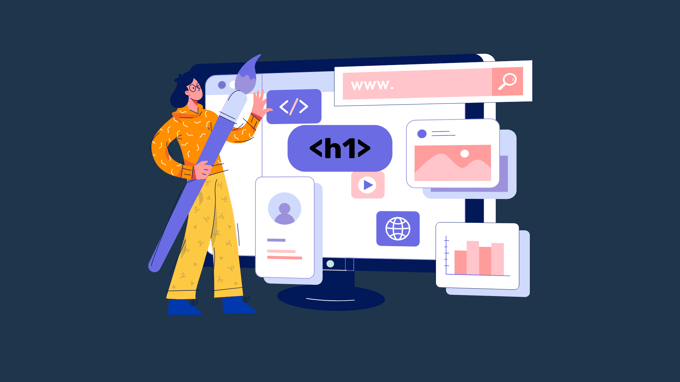Search Engine Optimization (SEO) is essential for businesses looking to boost their online visibility. Among the many components that contribute to SEO success, H1 tags, meta descriptions, and alt text play a critical role in ensuring your content is both user- and search engine-friendly. In this blog, we’ll explore why these elements are important and how they can help improve your website’s ranking on search engines like Google.
What is an H1 Tag?

An H1 tag is the main heading or title of a webpage. It's often the first thing both users and search engines see, which is why it’s crucial for it to accurately describe the content of the page. In HTML coding, the H1 tag is marked as <h1> and helps search engines understand the structure of your content.
While it may seem like a small element, optimizing your H1 tag can make a significant difference in your page’s SEO performance. Here’s why.
Why H1 Tags Matter for SEO
-
Improves Search Engine Understanding
Search engines like Google use H1 tags to quickly understand what the page is about. It provides context, helping search algorithms categorize your content appropriately. Without a strong, keyword-optimized H1 tag, your page could be less relevant to the search queries you're targeting.
-
Enhances User Experience
A clear and descriptive H1 tag helps users immediately understand the purpose of your webpage. A well-crafted H1 keeps readers engaged by delivering on the promise made in search engine results or social media links. This improves user experience, which in turn, can reduce bounce rates—another factor search engines consider when ranking your website.
-
Keyword Placement
Strategically placing relevant keywords in your H1 tag helps search engines identify your page’s focus. However, it’s important to avoid keyword stuffing—ensure your H1 is natural and reflects the content accurately. For example, if you're writing about "SEO Optimization," make sure the H1 tag includes those words or closely related terms.
Best Practices for Optimizing H1 Tags
-
One H1 Tag Per Page
Every page should have only one H1 tag. Having multiple H1s can confuse search engines and dilute the focus of your page. Other subheadings (like H2 or H3 tags) can be used to break down content into sections.
-
Keep It Short and Descriptive
Your H1 tag should be concise—aim for around 20 to 70 characters. It should describe the content in a way that’s both engaging for users and informative for search engines.
-
Use Keywords Naturally
Make sure your primary keyword appears in your H1 tag, but avoid forcing it. The tag should read naturally and be relevant to the content on the page.
-
Make It Engaging
Besides being SEO-friendly, your H1 tag should entice visitors to stay on your page. It’s the first impression they get of your content, so make sure it grabs attention.
Other Key SEO Elements to Consider
While H1 tags are vital for SEO, they are just one piece of the puzzle. Here are other important elements you should optimize for better search rankings:
- Meta Descriptions: Meta descriptions provide a brief summary of your webpage that appears in search engine results. While they don’t impact rankings directly, well-written meta descriptions with keywords can boost click-through rates.
- Alt Text for Images: Use descriptive alt text for images to improve accessibility and help search engines understand your content. Keywords in alt text can also boost your SEO.
- URL Structure: Keep URLs clean and concise. Include relevant keywords and avoid unnecessary characters or complexity for better SEO and user experience.
- Internal and External Links: Internal links connect your site’s content, while external links to credible sources add authority. Both help improve your SEO and keep users engaged.
- Subheadings (H2,H3, etc.): Break content into readable sections with keyword-optimized subheadings. This helps both search engines and users navigate your content more easily.
Conclusion: Small Tweaks, Big SEO Impact
SEO offers unprecedented opportunities to enhance your website’s visibility, attract more traffic, and improve user experience. At HarvestROI, we specialize in helping businesses optimize their SEO strategies to ensure you get the most out of these powerful tools. Whether you're just starting out with SEO or looking to refine your existing efforts, our team of experts is here to guide you every step of the way.
If you’re ready to take your website to the next level, contact us today and discover how our AI Consultants can help you achieve your goals. Let us help you harness the power of SEO to drive growth, traffic, and online success.